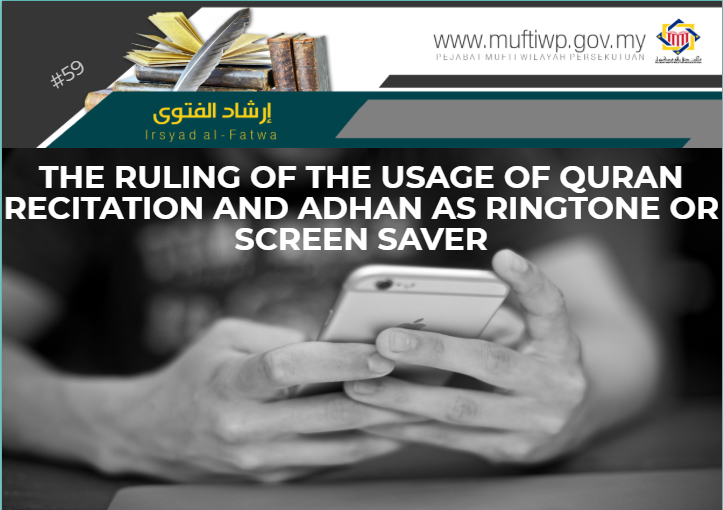Question:
What is the ruling for the usage of Quran recitation and the adhan as ringtone or screen saver for our phones?
Answer:
Alhamdulillah, praise and thanks to Allah for the many countless blessings He has blessed us all with. Blessings and salutations to the Prophet Muhammad PBUH, his wives, his family, companions and all those that follow his teachings to the day of judgement.
In truth, loving the Quran is encouraged and a commandment in Islam. It is also encouraged for every Muslim to always be (recite, learn and understand) with the Quran, the same goes for zikrullah (remembrance of Allah SWT) and the adhan. However, nowadays more and more people are using the verses of the Quran as well as the adhan as their ringtones for their phones. Basically, it is not a sin or an issue, however, the aspect of the usage and the manners of the usage, for example, ending a verse recitation just so that he can answer the phone call. This would surely lead to the verse being incomplete or it could change its meaning. In our opinion, this should be avoided.
The 77th Fatwa Committee of National Council for Islamic Religious Affairs Malaysia held on 10-12 April 2007 discussed "The Ruling of the Usage of the Recitation of the Verses of the Quran and the Adhan as Ringtones and Screen Saver of Handphones."
The Muzakarah decided that through the principles of Islam that is not prohibited to use the recitation of the verses of the Quran as ringtone if it fulfils the manners set in Islam and is used in places that do not degrade or dishonour the eminence and purity of the verses of the Quran, such as it cannot be used in the restrooms.
What we would like to emphasize here is, it is unreasonable for the phone’s owner to end the recitation of the verses of the Quran or the adhan abruptly just so that he can answer the call, which would make the recitation incomplete.
Thus, it is impermissible. This opinion is in line with the opinion of contemporary scholars today.
Wallahua’lam.


